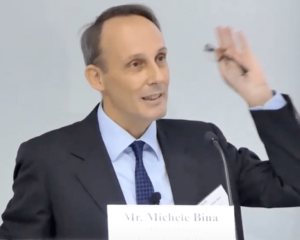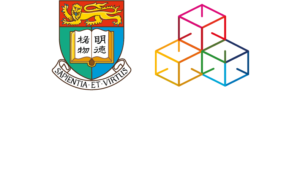Mr. Bina Michele Alessandro
"Working in a corporate Foundation, with my existing knowledge and focus mostly being on social outcomes, I enrolled in SLG (previously known as CEG) to expand my knowledge around current trends and best practices across the wider ESG ecosystem."
Alumni Profile
The failure of COP15 in Copenhagen in 2009 helped to focus the minds of leaders globally on solutions to the climate problem, particularly after the 2015 Paris Agreement. At the same time the private sector, and particularly the investment management sector, has increasingly looked beyond quarterly results. Asking questions about the longer-term viability of a number of increasingly unsustainable businesses and the better returns potentially offered by sustainable businesses. These two trends have reinforced each other and helped place sustainability higher on the agenda amongst politicians, business leaders and the public.
In turn businesses increasingly need to hire professionals who not only understand these issues but have the skills set to offer practical pathways to move businesses onto a sustainable footing. It is very likely that the CEO of the future will also need the skills of a “Chief Sustainability Officer” to lead a business and capture the opportunities of a new, more sustainable, economic paradigm that is gradually emerging.
One of the key lessons of the SLG (previously known as CEG) course has been to raise my awareness of, and think more holistically about, the multidimensionality and the interlinkages that exist around sustainability issues. These require significant interdisciplinary skills, many of which are taught during the course, and an ability to think beyond the immediate perimeter of an issue. The SLG (previously known as CEG) course teaches multiple frameworks within which to analyse these, often complex, interlinkages.
The course helped me to breach silos thinking and to look, for example, at the total economic value of an initiative and taught the required techniques. This is increasingly important to build the investment case of projects that help increase the sustainability of our environment, societies and economies.
In my role as Senior Consultant at the International Renewable Energy Agency I help build the case for investments in renewable energy generation projects in developing countries. There is a tendency, when looking at these investments, to look at the financial return offered by the project’s immediate scope: the generation of electricity. I am attempting to highlight the broader benefits of bringing electricity to communities that have not had access to electrification. In this case contextualising investments within the broader framework of the Sustainable Development Goals helps to highlight these additional benefits. The challenge of bringing out the key metrics of these additional benefits and reporting them in a consistent and increasingly accepted framework, such as the Global Reporting Initiative, is also something we learnt during the SLG (previously known as CEG) course.
In my role as Senior Consultant at the International Renewable Energy Agency I help build the case for investments in renewable energy generation projects in developing countries. One of the key lessons of the SLG (previously known as CEG) course has been to raise my awareness of, and think more holistically about, the multidimensionality and the interlinkages that exist around sustainability issues. These require significant interdisciplinary skills, many of which are taught during the course, and an ability to think beyond the immediate perimeter of an issue. The SLG (previously known as CEG) course teaches multiple frameworks within which to analyse these, often complex, interlinkages.
The course helped me to breach silos thinking and to look, for example, at the total economic value of an initiative and taught the required techniques. This is increasingly important to build the investment case of projects that help increase the sustainability of our environment, societies and economies


